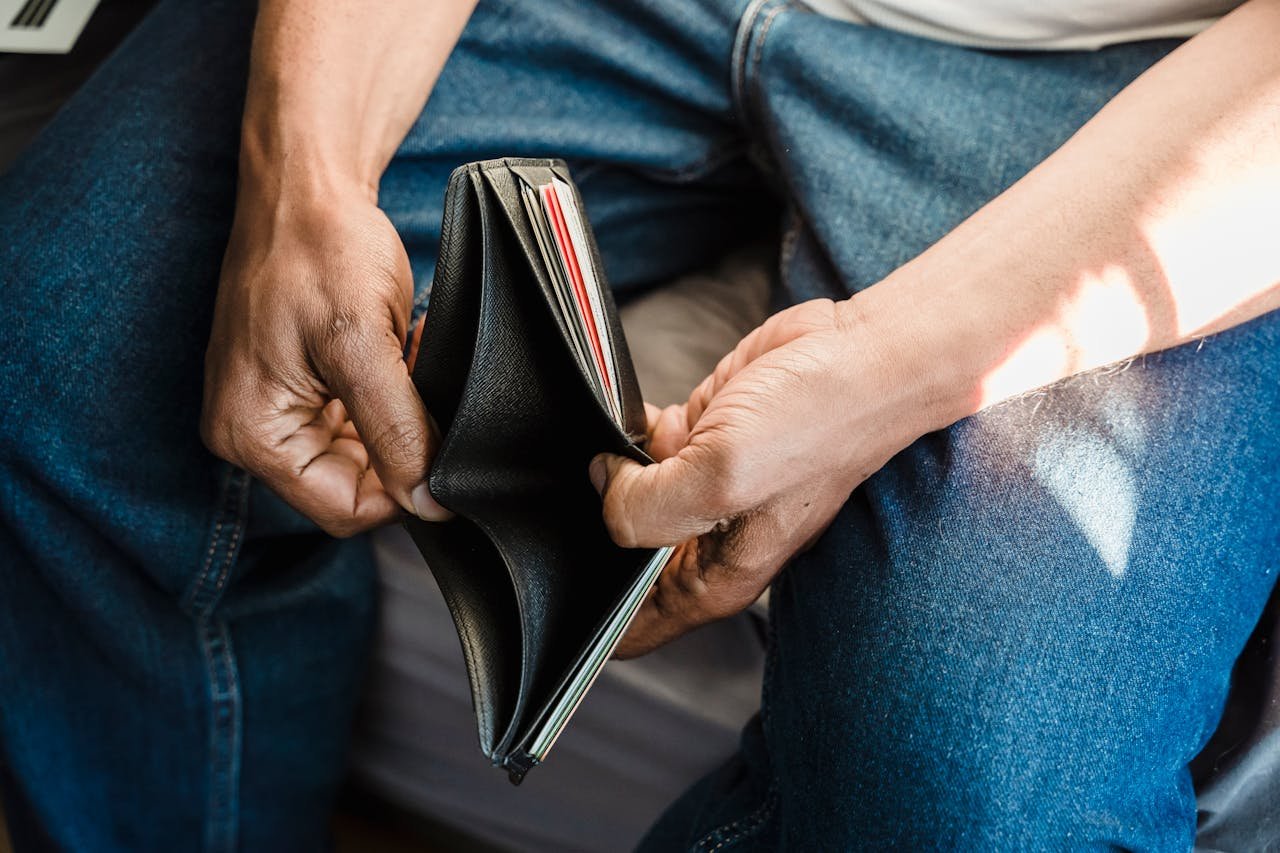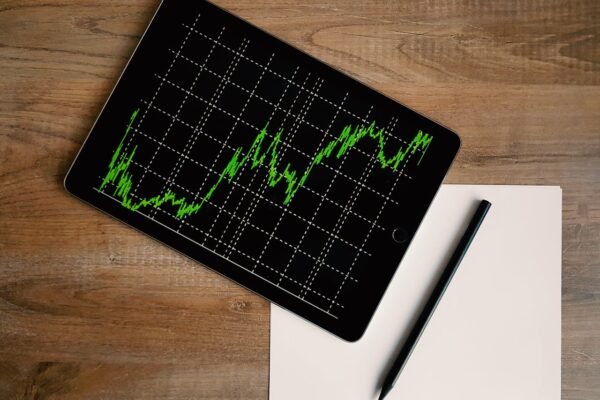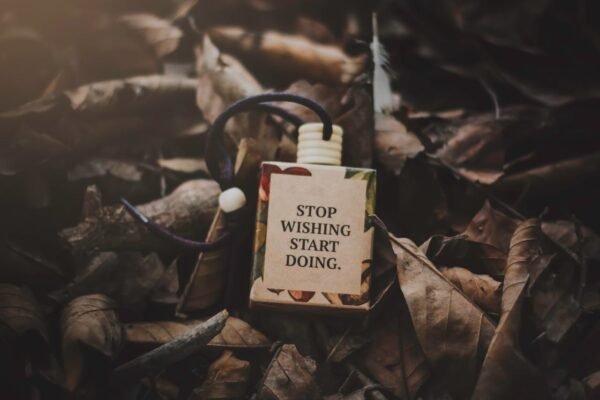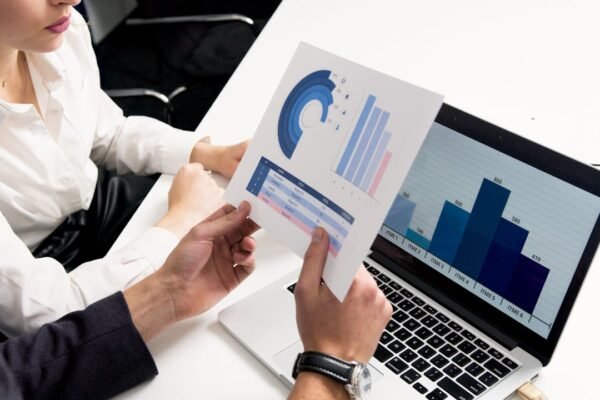If you think being broke means you have no money to your name, think again. Most of the time, being “broke” is really about not managing your money well. I’ve realized it’s not about how much you earn but how you handle what you have.
Money problems often come from habits, not lack of cash. The good news is, with some changes, you can take control and start making smarter choices. This isn’t about magic fixes, it’s about simple steps that anyone can take to improve their money situation.
You don’t need to make loads more money; you just need to make better decisions with what you have. I’ll share what helped me stop feeling broke and start feeling in control.
Key Takeways
- Being “broke” is mostly about poor money management, not income.
- Small changes in habits can improve your financial situation.
- You can take control without earning more money.
Why You’re Not Broke—Just Bad With Money
I want to clear up some ideas about money that confuse a lot of people. Being broke isn’t usually about how much you earn, but about what you do with it. It comes down to the habits and choices we make every day.
Common Misconceptions About Being Broke
Many people think being broke means you have no money at all. But often, it means you spend everything you get without saving. It’s not about how much money comes in; it’s about how fast it goes out.
Some believe they’re broke because they don’t make enough. But plenty of folks make a decent pay and still struggle financially. The problem is not earning money—it’s handling the money poorly.
Another myth is that being broke is permanent or tied to bad luck. Usually, it’s linked to repeated decisions like ignoring budgets or relying too much on credit cards.
Recognising Poor Financial Habits
I noticed many of my own money issues started with little habits that seemed harmless. Buying coffee every day, ordering takeout too often, or spending without tracking can add up fast.
Putting off making a budget or refusing to check bank statements are signs of poor money management too. When I ignore what’s going out, I’m more likely to overspend.
Impulse buys and emotional spending also hurt me. Shopping just to feel better or because something is on sale doesn’t solve money problems—it makes them worse.
How Spending Patterns Shape Your Reality
What I spend money on shapes how much I have left for things that matter. If every pay cheque disappears on clothes, gadgets, or nights out, bills and savings suffer.
I found it helpful to track my spending closely. Seeing exactly where my money went helped me spot wasteful habits and change them.
Simple changes like cooking at home more or cutting back on subscriptions freed up cash. Small shifts in spending can make a big difference in how broke or comfortable I feel.
| Habit | Effect on Money | What to Do Instead |
|---|---|---|
| Daily takeout | Eats up cash fast | Cook at home |
| Ignoring budgets | Leads to overspending | Create and review budgets regularly |
| Impulse buys | Causes unnecessary expenses | Wait 24 hours before buying |
Turning Bad Money Habits Into Smart Choices
Changing the way I handle money isn’t about big, sudden shifts. It’s about small, clear steps that add up over time. I found that simple tweaks, building a strong mindset, and setting doable goals helped me turn things around.
Simple Changes for Instant Wins
I started by making small changes that didn’t feel overwhelming. For example, I cut out just one unnecessary subscription and saved that money instead. It was a quick win that made me feel like I was in control.
I also began using a simple budget. I listed my monthly income and my main expenses in a table. This helped me see exactly where my money was going.
| Income | £2000 |
|---|---|
| Rent | £700 |
| Food | £300 |
| Transport | £150 |
| Subscriptions | £50 |
| Savings | £100 |
| Miscellaneous | £200 |
Tracking these numbers showed me small places to cut back without feeling deprived.
Building a Money Mindset That Lasts
I realised money isn’t about luck or being “good” or “bad” at it. It’s about habits that can be learned and improved. Changing how I think about money helped me stop feeling guilty and start getting organised.
I practise checking my money regularly, not just when I’m stressed. This helps me stay calm and make better choices.
I remind myself that every small step, like saving a few pounds or saying no to impulse buys, makes a difference. It’s about building habits that last, not quick fixes.
Setting Realistic Goals and Tracking Progress
Setting clear, realistic goals was a game changer. Instead of saying, “I want to save loads of money,” I aimed for small targets, like saving £20 a week.
I write my goals down and check them every week. This helps me stay on track and celebrate small wins.
I also keep a simple progress chart. Seeing my savings grow each week keeps me motivated and stops me from slipping back into old habits. Breaking big goals into small steps makes saving feel possible and less stressful.
FAQs
Q: Does being bad with money mean I’m going to stay broke?
No, it doesn’t. Being bad with money just means you might need to change how you manage it. Small changes can make a big difference over time.
Q: How can I start getting better with money?
Start by tracking what you spend. Seeing where your money goes helps you spot habits you can change. I found this one step really helped me take control.
Q: Is budgeting really necessary?
I used to think budgets were boring, but budgeting gives you a clear plan for your money. It doesn’t have to be strict; just a simple guide helps you avoid overspending.
Q: What if I have debt? Can I still fix my money habits?
Definitely. Debt can feel stressful, but fixing your money habits makes it easier to pay it off. Focus on one step at a time, like paying off small debts first.
Q: How long does it take to be better with money?
It’s different for everyone, but improvement usually takes weeks or months, not years. The key is staying consistent and learning from mistakes.
If you’re curious, here’s a quick list of easy first steps:
- Track expenses daily
- Set a simple budget
- Cut one small unnecessary spend
- Pay off the smallest debt first
These small moves can help you feel more in control without being overwhelming.




